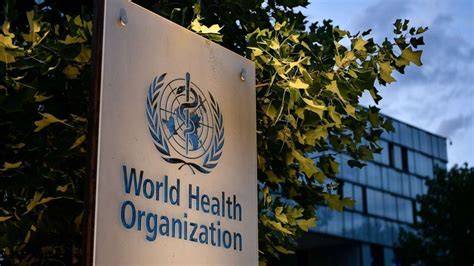WHO DECLARES MPOX A GLOBAL HEALTH EMERGENCY.
The World Health Organization (WHO) has officially declared mpox, previously known as monkeypox, a global public health emergency, emphasizing the urgent need for international coordination to address the growing outbreak. This declaration, the organization’s highest alert level, underscores the significant threat posed by mpox as cases continue to rise in multiple countries, sparking global concern among health authorities.
Mpox is a viral disease that was historically confined to parts of Central and West Africa, where it is endemic. However, the current outbreak has seen the virus spread across non-endemic regions, including Europe, the Americas, and Asia, prompting alarm about its unexpected reach. The disease primarily spreads through close physical contact, including skin-to-skin contact, contaminated surfaces, and respiratory droplets. While not as contagious as illnesses like COVID-19, the virus poses a serious threat due to its potential complications, particularly in vulnerable populations.
The WHO’s decision to declare a global public health emergency follows an uptick in cases reported worldwide. The declaration is designed to mobilize resources, streamline international collaboration, and push governments to take action. Dr. Tedros Adhanom Ghebreyesus, the Director-General of WHO, highlighted the importance of a coordinated global response to curb the outbreak and mitigate its impact. We must act decisively to control the spread of this disease, he stated, adding that the declaration aims to raise awareness and galvanize countries into implementing effective strategies.
Symptoms of mpox typically include fever, headaches, muscle aches, and a distinctive rash that progresses through various stages before forming scabs. Although mpox is rarely fatal in healthy individuals, it can lead to severe complications in those with compromised immune systems, pregnant individuals, and young children. The psychological and social burden of the disease, especially the stigma associated with visible symptoms, is also a significant concern.
In light of the emergency, the WHO is calling for enhanced surveillance, increased testing, and widespread public health campaigns to educate people about the virus and its prevention. Vaccination efforts are also being ramped up in affected areas, with existing smallpox vaccines proving to offer cross-protection against mpox. Countries are being urged to prioritize high-risk populations, including healthcare workers and individuals who may be exposed due to close contact.
Despite these efforts, challenges remain. Limited vaccine supplies and diagnostic tools have hindered containment efforts, particularly in low-income regions. Additionally, misinformation about the virus has fueled stigma and fear, making it more difficult for individuals to seek medical care or report symptoms. Addressing these barriers will be crucial to an effective global response.
Public health experts are urging individuals to take precautionary measures, such as avoiding close contact with infected individuals, practicing good hygiene, and seeking medical advice if symptoms develop. Governments, meanwhile, are being called upon to invest in robust healthcare systems that can respond to outbreaks swiftly and equitably.
The WHO’s declaration of mpox as a global public health emergency serves as a wake-up call for the world. It highlights the importance of international cooperation, early detection, and comprehensive healthcare strategies to combat emerging infectious diseases. With coordinated action and community engagement, there is hope that the spread of mpox can be controlled and its impact minimized.



No comments yet
Be the first to share your thoughts!